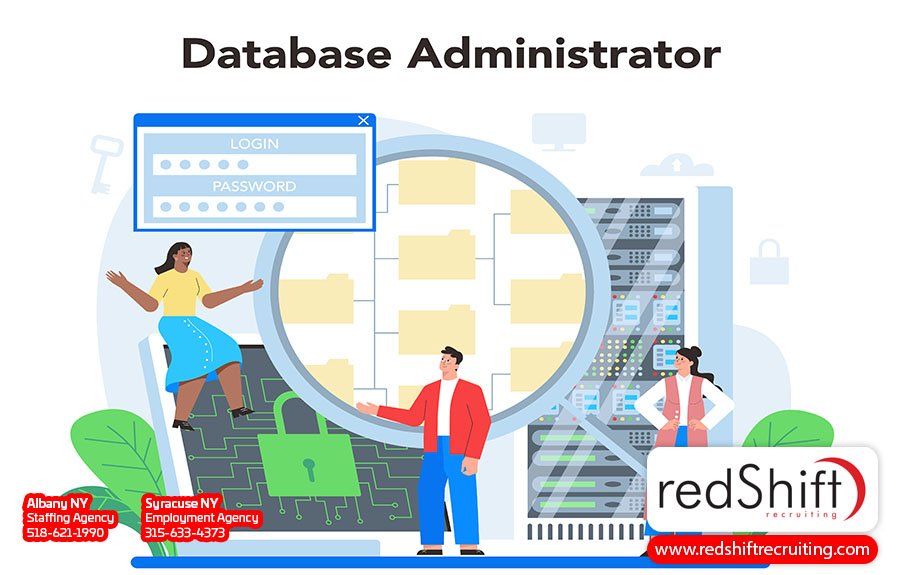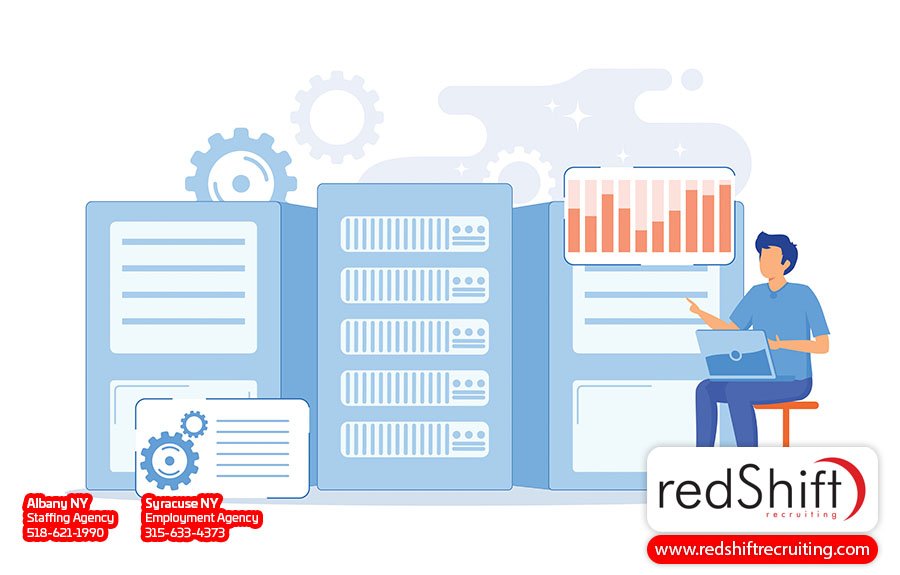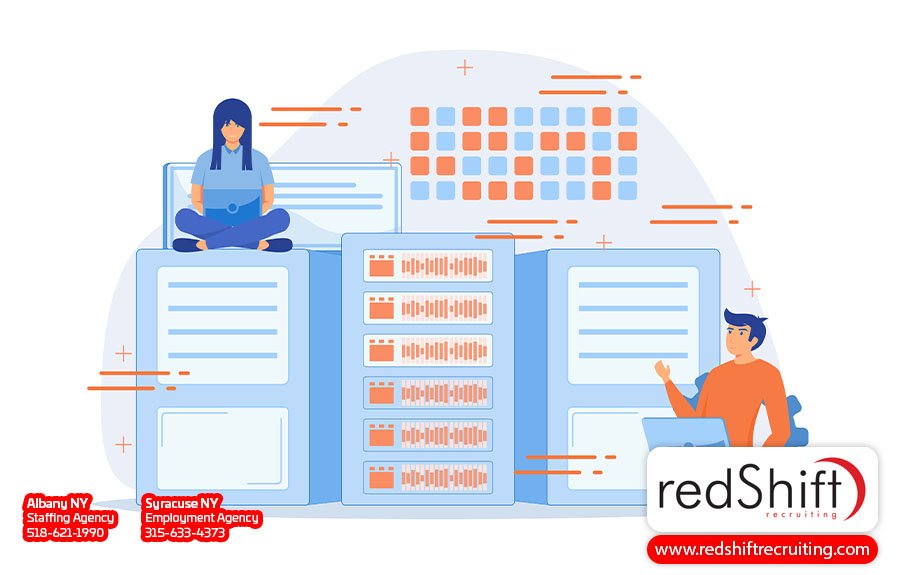From Chaos to Order: The Pivotal Role of Database Administrators
The strategic integration of a Database Administrator (DBA) into your IT team can transform the way your business handles data, from safeguarding sensitive information to optimizing database performance. This article delves into the multifaceted role of database administrators, their indispensable impact on business operations, and practical guidance for hiring and retaining top-tier talent. For employers looking to elevate their data management strategies, understanding the value a DBA brings is the first step towards harnessing the full potential of your company's data assets.
Demystifying the Role of a Database Administrator
Today's businesses handle unprecedented volumes of data, creating new opportunities for innovation and strategic insights. In this data-rich landscape, the database administrator (DBA) assumes a pivotal role, ensuring the seamless operation and security of database systems. These professionals are more than just guardians of data; they are architects of the database management system, meticulously designing, implementing, and maintaining it to guarantee database availability, integrity, and access. DBAs leverage various database administration tools to automate tasks, monitor performance, and manage databases efficiently, enhancing their ability to maintain system health and responsiveness. Their expertise is crucial for balancing the accessibility of critical business information with its security and optimizing the database system to support decision-making processes without compromising on database integrity.
Database administrators play a critical role in data modeling and schema design, laying the groundwork for the structure and organization of data within the database. They are also instrumental in implementing robust database security measures, employing sophisticated encryption and access controls to protect against unauthorized access and potential data breaches. The protection of sensitive information is key to safeguarding an organization's digital assets from both internal and external threats. This extends to developing comprehensive database backup and recovery strategies, which are essential for maintaining business continuity in the face of data loss or system failures. Through effective data migration practices, DBAs also ensure the seamless transfer of data across platforms, maintaining compatibility and minimizing downtime.
The management of user access rights is another vital responsibility, ensuring that individuals have the access they need to perform their roles efficiently while protecting sensitive data. Effective user management is key to preventing unauthorized access and ensuring that data flows smoothly across the organization. Additionally, performance monitoring and optimization are central to a DBA’s role, which involves the regular assessment and tuning of database systems to ensure they operate at peak efficiency in addition to facilitating optimal database performance and scalability.
DBAs also excel in troubleshooting and problem-solving, acting as the first line of defense against database-related issues. Their technical prowess and quick thinking are essential for diagnosing and resolving problems promptly, ensuring uninterrupted data accessibility, and supporting the organization's continuous operations. Blending technical expertise, strategic insight, and problem-solving skills, their contributions are critical not only for the daily operations of a business but also for paving the way for future growth and innovation.
Recognizing the DBA's Impact
Database administrators (DBAs) play a vital role in modern business, exceeding the traditional scope of custodianship over database management systems. Their meticulous approach to database design and performance tuning is essential for creating efficient, resilient database systems that uphold data quality and integrity. This foundation is critical for ensuring the accuracy and consistency of information, which supports a wide array of business processes and decision-making strategies. Their proficiency in ensuring reliable and secure databases also significantly enhances the customer experience by facilitating smooth system operation and faster response times.
DBAs are also at the forefront of leveraging database analytics to drive strategic insights, laying the groundwork for sophisticated data analytics. By managing and optimizing databases, they enable data analysts and other stakeholders to extract, interpret, and utilize data, propelling businesses forward through informed, data-driven decisions. Their behind-the-scenes efforts ensure that databases are not only operational but also optimized for peak database performance with secure and readily available data.
Additionally, database administrators contribute significantly to the economic resilience of an organization by integrating new databases, enhancing the database environment, and streamlining security management. These actions lead to cost savings through minimized downtime, improved resource utilization, and proactive maintenance, enabling accurate and reliable data analytics for strategic planning. Moreover, DBAs play a crucial role in supporting innovation by establishing a scalable and adaptable data infrastructure, ready to meet future growth and technological advancements.
As guardians of data security and compliance, database administrators also navigate the complexities of data privacy laws and regulations, providing a critical defense against legal and regulatory risks. Their expertise ensures that databases meet stringent compliance standards, which is especially crucial for businesses operating across diverse jurisdictions or sectors. By entrusting data assets to a skilled database administrator, organizations gain not only protection and reliability for their data but also the confidence to focus on strategic growth and innovation.
Finding and Retaining the Right DBA
In the competitive field of information technology, hiring a skilled database administrator is crucial for the seamless operation and security of large databases. Top candidates will not only possess a deep understanding of SQL (Structured Query Language) and database administration tools but will also have a strong foundation in computer science and practical experience in managing complex data systems. This combination of relevant skills ensures they can navigate data models, optimize database performance, and safeguard sensitive information within your IT environment. Additionally, proficiency in various database platforms, such as Oracle, SQL Server, and MySQL, and knowledge of programming languages like Python or Java are critical technical skills that enhance a DBA's ability to automate tasks and develop custom database solutions. Relevant certifications can also demonstrate a DBA's expertise and dedication to upholding data security best practices.
Soft skills like adaptability and keen attention to detail are indispensable in today’s rapidly changing tech environment. These attributes enable DBAs to effectively manage database systems, ensuring data integrity and accessibility for authorized users while identifying and mitigating potential vulnerabilities. Effective communication and teamwork are also essential soft skills, as DBAs must frequently collaborate with other IT professionals and communicate complex information to non-technical stakeholders. The ability to problem-solve creatively and efficiently under pressure further distinguishes exceptional DBAs in the field. Cultural fit is another important factor, as a database administrator who aligns with your company's culture and values can significantly enhance team cohesion and contribute to a positive work environment.
Depending on factors such as budget, project scope, and the ongoing need for specialized expertise, organizations may choose to hire an in-house DBA or seek talent through a staffing agency on a temporary or contract basis. While an in-house DBA provides dedicated support and is deeply integrated with company processes, hiring through a contract IT staffing agency offers flexibility and access to a broad skill set for specific projects or temporary needs.
After a successful hire, providing training and professional development opportunities is vital to supporting long-term success within your organization. Encouraging continuous learning and setting clear expectations for career progression are key to retaining top talent, preparing them for advancements in technology, and ensuring they remain a driving force on your IT team.
Ultimately, integrating a DBA into your team goes beyond skill matching to find a professional who can grow with your organization, contribute to its strategic objectives, and enhance the overall operating system and database architecture. By fostering a supportive environment and offering clear pathways for advancement, you attract and retain the dedicated professionals essential for navigating the complexities of modern database systems.
Strengthening Your Organization With a Skilled DBA
Integrating a database administrator into your IT team yields significant, long-term benefits that can enhance operational efficiency and hone your organization's competitive edge. A DBA's deep expertise in database security measures significantly mitigates risks associated with data breaches, protecting sensitive data, and building trust with your stakeholders. This critical role in security management ensures that your databases are resilient against threats, laying a foundation of trust and reliability.
DBAs also play a pivotal role in maintaining database accessibility and compliance, ensuring that your data handling aligns with evolving data privacy regulations. Their vigilance in navigating complex legal standards is essential for preventing potential legal issues and financial penalties and future-proofing your data practices against legislative changes. Furthermore, most database administrators tend to focus on maintaining data integrity and system availability, which are crucial for minimizing downtime and enhancing user satisfaction.
Collaboration is key in the IT environment, and DBAs work closely with database architects, data analysts, and data warehouse administrators to ensure that database resources are optimized and effectively integrated with other IT systems. This teamwork is vital for the seamless operation and utilization of IT infrastructure, supporting a wide array of organizational needs. DBAs can also drive cost savings by identifying and eliminating inefficiencies in IT infrastructure, improving scalability, and designing and managing databases that adapt to future growth and changing business needs, ensuring that organizations are well-positioned for both current and future challenges.
Finally, the strategic contributions of a DBA facilitate data-driven decision-making, enabling your organization to harness accurate insights for strategic planning. By ensuring high-quality data, DBAs empower data analysts and decision-makers to optimize operational strategies and achieve superior business outcomes. Their efforts not only bolster the current database environment but also pave the way for future growth and innovation, securing your organization's position in a rapidly changing world.
Frequently Asked Questions
How Does Having a Dedicated DBA Enhance the Overall Efficiency and Productivity of an IT Team?
Incorporating a dedicated database administrator into your IT team significantly enhances operational efficiency and productivity. A DBA takes charge of critical database functions, including maintenance, optimization, and security, which encompasses performance tuning, managing data backups, and optimizing queries. This specialized focus ensures that databases run smoothly and efficiently, directly contributing to the system's overall performance. By handling these essential tasks, a DBA reduces the burden on other IT team members, enabling them to concentrate on their specialized responsibilities without the distraction of database-related issues.
Additionally, the presence of a DBA facilitates the quick identification and resolution of any database issues, minimizing downtime and maintaining uninterrupted system operations. This not only improves the IT team's productivity but also enhances the reliability and accessibility of data across the organization. Their role in data migration and integration can further improve efficiency by ensuring seamless data flow and system interoperability, which supports agile responses to business needs and facilitates faster, more informed decision-making processes.
What Specific Skills and Qualifications Should a DBA Possess in Order to Be Effective in Their Role?
An effective database administrator possesses a comprehensive skill set that includes both technical expertise and soft skills. Technical proficiency in database management systems (DBMS), a thorough understanding of SQL, and familiarity with programming languages are foundational. Expertise in data modeling, database design, security protocols, data recovery strategies, and performance tuning techniques further define their ability to maintain, optimize, and secure database systems efficiently. Equally important are strong problem-solving and analytical abilities, enabling DBAs to swiftly troubleshoot and enhance system performance.
Beyond these qualifications, soft skills such as effective communication, collaboration, and critical thinking are indispensable for database administrators. These skills ensure productive interactions with other IT professionals and stakeholders, facilitating a cohesive approach to data management and project execution. Finally, staying up-to-date with the latest database technologies and trends is key to success in this field. The blend of these technical proficiencies and soft skills enables DBAs to effectively navigate the complexities of their role, ensuring the reliability, performance, and security of database systems within the organization.
How Does the Role of a DBA Differ From That of a System Administrator or a Software Developer?
The role of a database administrator differs from that of a system administrator or a software developer due to its focus on specialized aspects of database management. Unlike system administrators, who are tasked with overseeing the broader IT infrastructure, including hardware and network systems, or software developers, who focus on creating and implementing software applications, DBAs are dedicated to the intricate details of database access, design, implementation, and maintenance. They play a crucial role in ensuring data integrity, optimizing database performance, and securing sensitive information against unauthorized access, ultimately safeguarding the heart of an organization's information system.
While their roles are distinct, DBAs often share overlapping responsibilities with system administrators and software developers, particularly in areas like user management and security protocols. Depending on the organizational structure, DBAs may also be involved in database server administration tasks, which could overlap with system administrator duties. This overlap fosters a collaborative environment within IT teams, where knowledge sharing and joint efforts are common to enhance database access, security, and efficiency. By working closely together, DBAs, system administrators, and developers ensure a cohesive and robust IT infrastructure, with each role bringing its own unique expertise to support and enhance the organization's technological framework.
What Are Common Misconceptions or Myths About the Role of a DBA?
Common misconceptions about the role of database administrators often undermine the specialized skills and contributions they bring to an IT team. Contrary to the belief that a DBA's duties overlap significantly with those of system administrators or software developers, DBAs are primarily focused on the specialized management and optimization of databases, ensuring data integrity, and fortifying database security measures. Their role is distinct, concentrating on data's structured storage, retrieval, and protection, which is foundational to any organization's operations. Additionally, while some assume that DBAs are only responsible for maintaining existing databases, in fact they are also involved in designing and implementing new databases to meet changing business needs.
Another widespread myth is the idea that automation tools can eliminate the need for a DBA. While automation does play a supportive role in streamlining routine tasks, the unique insights, strategic planning, and complex problem-solving capabilities that a seasoned DBA provides are irreplaceable. It's also a misconception that DBAs only need expertise in the specific database technology their organization uses. In truth, effective DBAs have a broad understanding of database fundamentals and principles that apply across multiple platforms, enabling them to adapt to various technologies and enhance their organization's database systems comprehensively. This expertise equips them to tackle challenges beyond the limitations of a single technology.
How Can an Organization Assess the Need and Value of a Dedicated DBA for Their IT Team?
Determining whether your organization will benefit from hiring a dedicated database administrator requires a thorough assessment of the database infrastructure's size, complexity, and importance to business operations. Factors such as the volume of data managed, the number of users accessing the system, and how critical the data is to daily operations play a significant role in this evaluation. If your team is grappling with performance bottlenecks, data integrity issues, or significant downtime, the specialized skills of a DBA can offer substantial benefits. These professionals not only enhance performance and ensure data integrity but also significantly reduce system downtime. Additionally, adding a DBA to your team can free up other IT staff members to focus on strategic initiatives and new development projects.
Furthermore, in today's regulatory environment, the importance of adhering to compliance requirements and data security regulations cannot be overstated. Organizations must navigate a complex landscape of data protection laws, which often requires the dedicated expertise of a DBA. This expertise is critical in implementing robust security measures, conducting regular audits, and ensuring that data handling practices comply with legal standards. Investing in a DBA can therefore not only optimize your IT infrastructure but also safeguard your organization against compliance risks and security threats, making it a prudent decision for enhancing the efficiency and security of business operations.
Conclusion
The decision to hire a database administrator is a strategic move that can significantly impact an organization's efficiency and security posture. By prioritizing the addition of a DBA, either directly or via contract through a staffing agency, businesses can ensure the integrity and accessibility of their critical data while freeing up other team members to focus on their core responsibilities. This investment not only mitigates the risks associated with database management but also enhances the overall productivity of the IT department, making it an essential consideration for any forward-thinking business.
Article Author:
Ashley Meyer
Digital Marketing Strategist
Albany, NY





